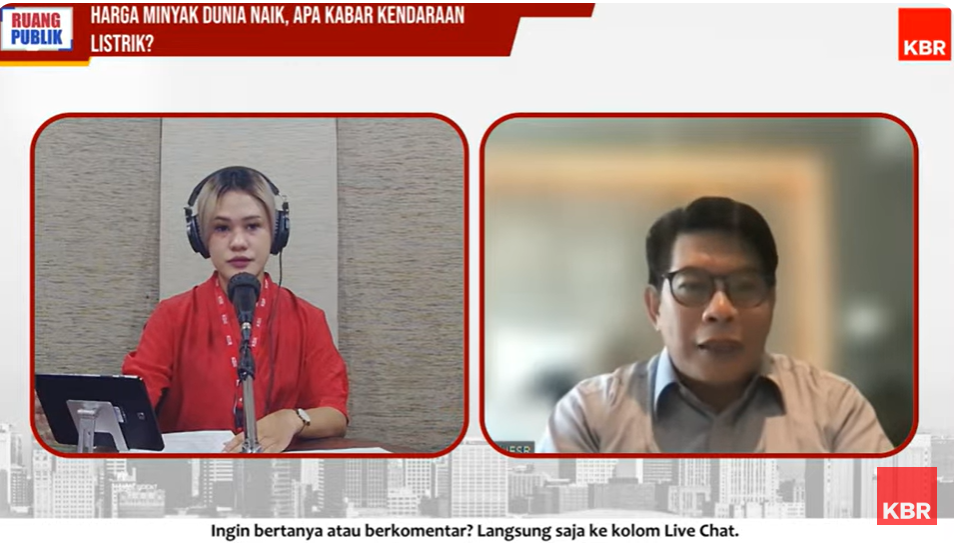Jakarta, April 24, 2024 – The escalation of the conflict between Iran and Israel has created tensions that could destabilize the global economy, including in Indonesia. The significant issues of concern are likely supply disruptions and an increase in oil prices, particularly since the Strait of Hormuz in Iran is a crucial trade route for global oil exports. These concerns were shared by Fabby Tumiwa, the Executive Director of the Institute for Essential Services Reform (IESR), during the KBR Public Space Talk Show on Wednesday, April 24, 2024, titled “World Oil Prices Rise: What’s Up Electric Vehicles?“
“For this reason, we need to be aware of the dynamics of fossil energy prices by reducing the risk of crude oil imports and finding ways to diversify energy imports. Furthermore, the depreciation of the rupiah exchange rate vis-a-vis the US dollar is a significant factor that may impact the cost of producing fuel oil (BBM) in Indonesia,” Fabby said.
Reflecting on this, Fabby emphasized that the Indonesian government should be more aggressive in encouraging renewable energy development to substitute fuel. For example, diesel power plants in Disadvantaged, Frontier, and Outermost (3T) areas can be replaced with renewable energy plants. Indonesia can also increase the use of biofuels (BBN) by paying attention to environmental sustainability in its production.
“Indonesia has abundant sources of biofuels, including palm oil, jatropha, sampling, kemiri sunan, and microalgae. The country is currently working on developing bioethanol as a fuel mixture with gasoline. If Indonesia succeeds in this endeavor, it will help to decrease the need for fuel imports,” Fabby said.
However, Fabby said several challenges are faced in developing renewable energy. First, the interest factor from certain circles. Second, various inconsistencies in policies and regulations make businesses hesitate to invest in renewable energy. For example, renewable energy is constrained in the electricity sector because only PLN can buy electricity from Independent Power Producer (IPP), and the IPP cannot sell it to consumers. Third, the business aspect of renewable energy by considering risk.
“Overcoming the challenges of transitioning to renewable energy requires a strong political will from governments and other involved parties to prioritize and develop renewable energy more aggressively. This transition is crucial to achieving the net-zero emission (NZE) target set in the Paris Agreement by 2060, or even earlier,” Fabby said.

